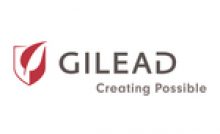Spent Fuel & Nuclear Waste Management Market, 2020 – Growth, Trends & Forecast – ResearchAndMarkets.com


DUBLIN–(BUSINESS WIRE)–The “Spent Fuel And Nuclear Waste Management Market – Growth, Trends, and Forecast (2020 – 2025)” report has been added to ResearchAndMarkets.com’s offering.
- Various ongoing and upcoming nuclear power plant clean-up activities across the globe along with numerous nuclear power reactor decommissioning activities are some major drivers for this market.
- Major countries in the Middle East & Africa accompanied by a few major companies are investing in the non-fossil fuel-based power generation technologies, especially in a small nuclear reactor. Saudi Arabia plans to achieve 30-50% of local content for its nuclear program before 2030. Similarly, Jordan and a few more countries are in the initial phase of nuclear power plant construction which is likely to provide an opportunity to grow the global spent fuel and nuclear waste management market in the coming future.
- Asia-Pacific is expected to be the fastest-growing region in the global spent fuel and nuclear waste management market, owing to the presence of several major developing nations such as China, India, etc.
Key Market Trends
Nuclear Power Reactor to Drive the Market
- In the wake of growing environmental concerns and surging demand for power, nuclear power generation has become the most dependable option that can cater to the requirements of electricity and offset greenhouse gas emissions. The nuclear power generation is a clean power technology, which can meet the increasing demand for electricity efficiently. But nuclear power plant generates a lot of nuclear waste which is usually referred to materials or residues left after the burning of nuclear gasoline in reactors. These residues specifically incorporate radioactive materials which can purpose acute radiation sickness.
- The technology advancement in the industry of nuclear power plant provides better fuel utilization and provide clean energy about 10% of the world’s electricity from about 440 power reactors. Moreover, globally there are many nuclear power plants with age exceeding 30 years.
- Most of the country’s nuclear power were built between 1967 and 1990. Further, from 1977 to 2013, no new construction of the nuclear plant was undertaken, due to the increased popularity of the economic attractiveness of gas-based power generation. Consequently, there was a decreasing trend of investments in the nuclear sector, which aided the decommissioning of nuclear power plants. As a result, spent fuel and nuclear waste also need deep and permanent burial for protection from radioactive radiation.
- These trends in turn expected to drive the global spent fuel and nuclear waste management market during the forecast period.
Asia-Pacific to Dominate the Market
- Asia-Pacific has a strong focus on nuclear power due to growth in population, industrialization, and urbanization in the region. China and India are focusing on nuclear power plant life extension while discovering the potential for new nuclear power plants. In Asia, there are about 130 operable nuclear power reactors, out of which 35 are under construction and counties planning to build an additional 70-80. Many more are proposed.
- The Chinese nuclear sector is expected to continue to expand at a robust rate, with capacity increasing by an annual average of 10.3% between 2018 and 2027, resulting in more than 95GW of installed nuclear capacity. China’s government targets to have 58GW of nuclear capacity operating by 2020-2021, and 150GW by 2030.
- Moreover, India has also attained independence in its nuclear fuel cycle. The Indian government is dedicated to growing its nuclear power capacity as part of its huge infrastructure development program. The government expects nuclear capacity to reach about 22.5 GWe by the year 2031. At the end of 2019, seven reactors were under construction in India, with a combined capacity of 5.4 GWe.
- These trends in return, expect the growth in the number of the nuclear power plant in the region which require good management of nuclear waste for protection from environmental concerns. Hence, the global spent fuel and nuclear waste management market likely to propel during the forecast period in the region.
Key Topics Covered:
1 INTRODUCTION
1.1 Scope of the Study
1.2 Market Definition
1.3 Study Assumptions
2 EXECUTIVE SUMMARY
3 RESEARCH METHODOLOGY
4 MARKET OVERVIEW
4.1 Introduction
4.2 Market Size and Demand Forecast, in USD billion, until 2025
4.3 Recent Trends and Developments
4.4 Government Policies and Regulations
4.5 Market Dynamics
4.5.1 Drivers
4.5.2 Restraints
4.6 Porter’s Five Forces Analysis
4.6.1 Bargaining Power of Suppliers
4.6.2 Bargaining Power of Consumers
4.6.3 Threat of New Entrants
4.6.4 Threat of Substitutes Products and Services
4.6.5 Intensity of Competitive Rivalry
5 MARKET SEGMENTATION
5.1 Type
5.1.1 Low-level Waste
5.1.2 Intermediate-level Waste
5.1.3 High-level Waste
5.2 Source
5.2.1 Nuclear Power Reactors
5.2.2 Nuclear Fuel Cycle Facilities
5.2.3 Radioactive Mining, Milling, and Extracting Activities
5.2.4 Research, Medical, and Industrial Source
5.2.5 Military and Defense Programs
5.2.6 Other Sources
5.3 Geography
5.3.1 North America
5.3.2 Europe
5.3.3 Asia-Pacific
5.3.4 South America
5.3.5 Middle-East and Africa
6 COMPETITIVE LANDSCAPE
6.1 Mergers and Acquisitions, Joint Ventures, Collaborations, and Agreements
6.2 Strategies Adopted by Leading Players
6.3 Company Profiles
6.3.1 Fluor Corporation
6.3.2 Westinghouse Electric Company LLC (Toshiba)
6.3.3 Bechtel Group Inc.
6.3.4 Chase Environmental Group
6.3.5 Perma-Fix Environmental Services
6.3.6 Magnox Technologies Pvt Ltd
6.3.7 Veolia Environment SA
6.3.8 Studsvik AB
6.3.9 Enercon Services Inc.
6.3.10 EnergySolutions
7 MARKET OPPORTUNITIES AND FUTURE TRENDS
For more information about this report visit https://www.researchandmarkets.com/r/ok4mhr
Contacts
ResearchAndMarkets.com
Laura Wood, Senior Press Manager
press@researchandmarkets.com
For E.S.T Office Hours Call 1-917-300-0470
For U.S./CAN Toll Free Call 1-800-526-8630
For GMT Office Hours Call +353-1-416-8900
Recent Posts
Announcement of Corporate Rebranding: IAT (Singapore) Technology Pte. Ltd. Transitions to IAS Global Pte. Ltd.
SINGAPORE - Media OutReach Newswire - 2 April 2025 - IAT (Singapore) Technology Pte. Ltd.…
The Henderson Art Garden Is Now Open to Public
HONG KONG SAR - Media OutReach Newswire - 1 April 2025 - Henderson Land Development…
iSON Xperiences Appoints Ricardo Langwieder as Chief Sales Officer to Drive Growth and Innovation
DUBAI, UNITED ARAB EMIRATES - EQS Newswire - 1 April 2025 - iSON Xperiences (www.iSONXperiences.com),…
Ascott powers up loyalty programme, Ascott Star Rewards, with enhanced member features to treble membership by 2028
Refreshes user interface and boosts personalisation on ASR mobile app to enhance ease of use…
Record-breaking Global Participation: Final Call to Join the TERA-Award by 9 April
HONG KONG SAR - Media OutReach Newswire – 1 April 2025 - The 4th TERA-Award…
iSON Xperiences Appoints Ricardo Langwieder as Global Chief Sales Officer to Drive Growth and Innovation
DUBAI, UNITED ARAB EMIRATES - EQS Newswire - 1 April 2025 - iSON Xperiences (www.iSONXperiences.com),…


